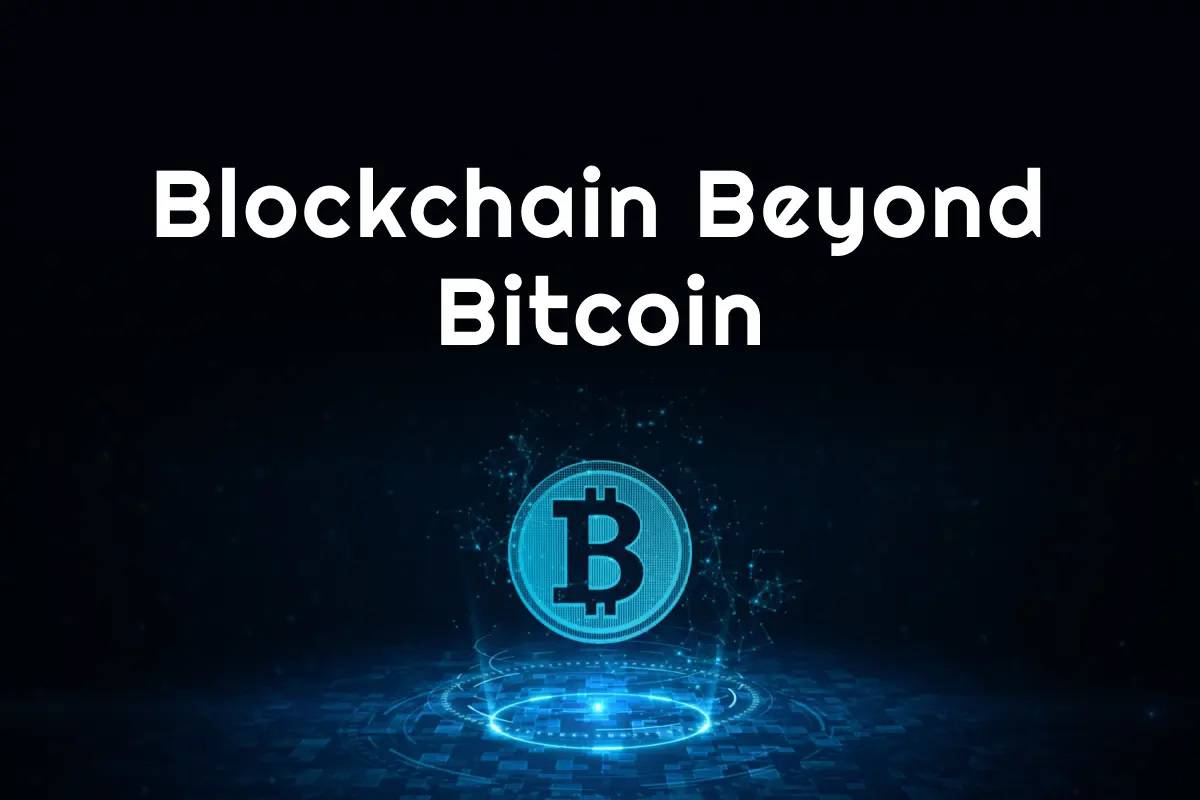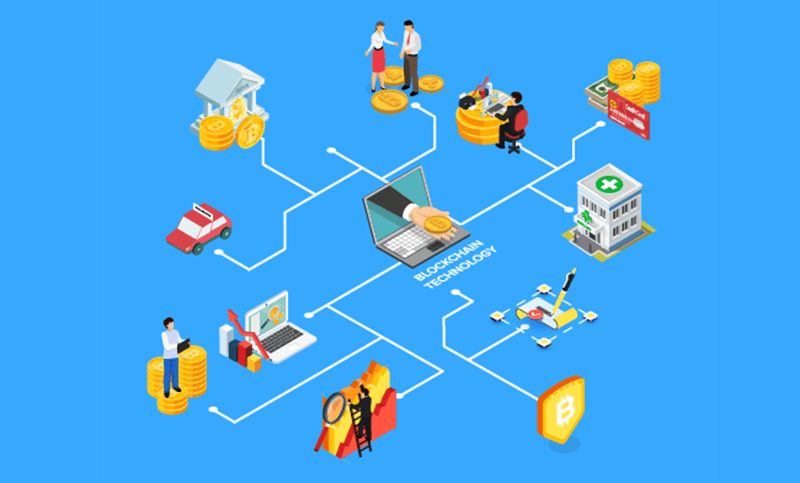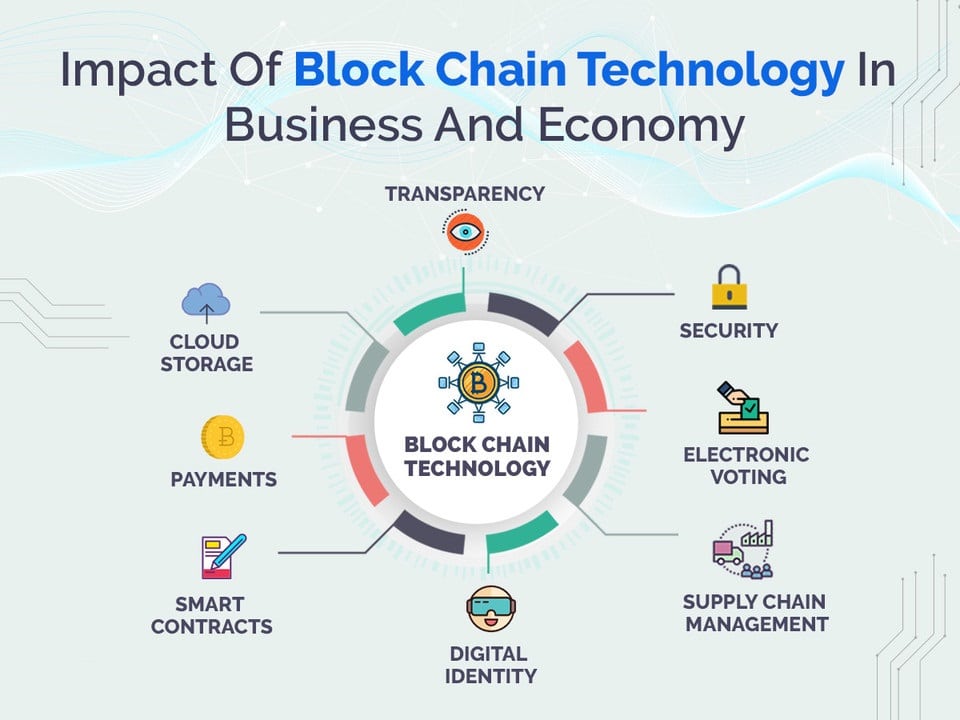We all know blockchain powers Bitcoin, but the potential applications of blockchain in the future stretch far beyond digital cash. Imagine a world where our health data is iron-clad secure, where no one outside the clinic can peek at your history without your say-so. That’s not a pipe dream; that’s blockchain revolutionizing healthcare, and it’s just the start. It’s redefining finance too, making money moves across countries cheaper and faster than ever, and even those without a bank can join in. This isn’t just cool tech — it’s smart contracts shaking up everything from buying a house to protecting your big ideas. And governments? They’re getting smarter, faster, and more transparent. Buckle up, because I’m diving deep into how blockchain will change industries you care about.
Revolutionizing Healthcare with Blockchain Technology
Enhancing Patient Data Security and Privacy
Let’s talk about keeping your health info safe. Imagine a world where only you and your doctor can peek at your health records. This is what blockchain technology advancements aim to do. With blockchain, no one else can make changes or see your private info without permission. It’s like a secret club where only members know the password.
Now, how does blockchain make data more secure and private? Well, it breaks the info into pieces and scatters it across a network of computers. This makes it super tough for hackers to grab your personal details. It also means you can share your health data with doctors easily and quickly.
But there’s more! Blockchain also uses smart contracts. They’re like automated promises that only go through if certain rules are met. They can help manage who gets to see your info. It’s like having a robotic bouncer at the door of your health records.
With your data secure and private, you can stress less. You know that prying eyes can’t sneak a look at your sensitive health details. Now that’s what I call peace of mind!
Streamlining Clinical Trials and Research
Clinical trials are super important for getting new treatments to folks who need them. The future of distributed ledger tech can help make these trials smoother and faster. How? By keeping track of all the trial details in a way that’s honest and easy to check.
Each patient’s data gets a spot on the blockchain. This means researchers can trust the info, as it hasn’t been tampered with. It’s all about being sure that the trial is fair and the results are real.
Smart contracts usage in trials means that certain tasks can happen on their own. For example, when a patient meets the trial’s rules, things roll forward without extra paperwork. With less manual work, researchers can focus on the science part. And that’s good for everyone!
By making trials more efficient, we could see new medicines and treatments helping people sooner. And by keeping patient data on lock, we all win. It’s a future where everyone’s health can be better protected and improved, with a little help from blockchain.
So, there you have it – blockchain isn’t just for trading digital coins. It can guard our health data like a fearless knight and make medical breakthroughs speedier. That’s a future we can all look forward to.
Redefining Finance through Decentralized Systems
Impact on Cross-Border Payments and Remittances
Blockchains change how we send money across borders. Right now, it’s slow and costly. But blockchains can make it faster and cheaper. People often ask how blockchains can speed things up. Simple: they cut out middlemen.
See, normally, banks and services move your money in steps. And they take fees. Each step and fee slows things down. Blockchains skip the steps. They pass your money directly to the person you’re sending it to.
Now, let’s talk about costs. Banks often charge a lot to send money abroad. But blockchains have lower costs. That’s because they use technology, not expensive services or systems.
Countries that rely on money sent from folks working abroad will see big benefits. In places like these, saving on fees matters. So, adopting blockchain for cross-border payments helps a lot. It’s not just about the savings, though. It also brings speed and can help economies grow.
Facilitating Financial Inclusion with DeFi Platforms
Let’s move to DeFi, or decentralized finance. It’s a big deal for people left out of regular banking. No banks are needed here. With DeFi, anyone with a smartphone can access financial services.
Think about folks who can’t open bank accounts easily. Maybe it’s because of where they live. Or perhaps the fees are too high. DeFi wipes out these barriers. If someone has little money or lives far from a bank, DeFi platforms can include them.
Platforms built on blockchain let people borrow, save, and invest. Now, small business owners can get loans without big bank hurdles. Farmers in remote areas can sell their crops ahead of time. And regular folks can earn interest on their savings.
All this happens because smart contracts say what will be done. Smart contracts are like deals written in code. They self-execute when conditions are met. This takes away the need for a middleman, which makes everything faster and fairer.
By using DeFi, even those at the bottom can climb up. This means a better life for them. And when they do better, we all do better. Because economic growth spreads. It doesn’t just stay in one place.
So when you hear about blockchain, remember. It’s not only cool tech. It’s a tool to reshape our world – to make finance fair and open to all. And as things keep changing, we’ll find new ways to use this powerful tool. The future is wide open, and blockchains will lead the charge.
Smart Contracts: Automating Legal and Business Processes
Transforming Real Estate Transactions
Buying a house can be a real pain. There’s so much paperwork! But smart contracts are set to change that. How? They make buying and selling property faster and safer. No need to wait weeks for banks and lawyers to move papers. With blockchain, this can happen in days or even hours.
Imagine this. You find your dream home. You pay with digital currency. The smart contract checks if everything’s okay. If it is, voila! The house is yours. It’s like a vending machine for houses – you pay and get the product right away.
This also means less cheating. Sometimes, people try to sell a house they don’t really own. But with blockchain, we can check who owns what in seconds. No more scams. It’s like a superhero for home buyers, keeping their money safe.
Blockchain also helps with loans. Right now, getting a home loan takes time. There’s so much to check. But with blockchain, banks can see your info fast and safe. This means you get your loan quicker. It’s like a fast lane for your money!
Innovating Intellectual Property Management
Now, let’s talk about ideas. We all have them. Some make music, art, or invent stuff. But how do you keep others from stealing your work? Smart contracts can help here too. Let’s say you write a song. You can use blockchain to prove it’s yours. If someone tries to take it, you have the proof – quick and solid.
Selling your work gets better with blockchain too. You can set up a smart contract to get paid. Every time someone uses your song or invention, you get your share. Straight to your wallet. No need for middlemen taking cuts. More money for you to make more awesome stuff!
And if you’re a maker, you’ll love this. You can track who’s using your stuff in real-time. That means you know who your fans are. How cool is that? It’s like having a spy who tells you who loves your work.
In short, we’re moving towards a world where buying homes and protecting ideas is way easier. Smart contracts on blockchain are making deals safe, quick, and fair. It’s not just about tech – it’s about making our lives better. So next time you hear ‘blockchain,’ think big. It’s not just about Bitcoin. It’s about a future where we all win.
What an exciting time to be alive, right? We’re just scratching the surface of what’s possible. With smart contracts, the future looks smart indeed.
Advancing Government Efficiency with Blockchain
Improving Public Record Keeping and Transparency
Blockchain could make public records safer and clearer. Records like birth certificates and property titles need safe keeping. Blockchain offers a secure way to store and access these documents. It’s like a digital vault that’s very hard to break into. Everyone can trust it because no single person controls it. Think of it as a shared notebook that everyone can see, but no one can erase.
This tech keeps all records in one place and updates them in real time. If I buy a house, the sale shows up instantly for everyone to see. No one can claim they own my house. It stops people from cheating or making mistakes with important records.
Governments around the world are looking into how blockchain can help them. They see it can make things better for everyone. For example, some countries are thinking about using blockchain for land records. People would be able to check who owns a piece of land in seconds. This would help to stop fights over land and make buying or selling it a breeze.
Implementing Secure Voting Mechanisms
One exciting use for blockchain is voting. It could change how we vote for our leaders. Today, people sometimes worry if their vote really counts or if someone could change it. With blockchain, we could vote in a way that’s very safe and can’t be messed with. Everyone would know their vote counts for real.
What makes blockchain voting neat is once you vote, no one can change it. The vote stays locked in and gets counted with everyone else’s. This makes it hard for anyone to cheat. Imagine a big, shared puzzle where each piece is a vote, and once you put it in, it stays put for good.
In some places, like small towns or for clubs, tests are going on right now to see if blockchain voting works well. They’re checking to see if it’s easy for people to do and if it keeps their vote locked down tight. The goal is for lots of people to vote without having to worry.
So, imagine a future where we no longer wait in long lines to vote. Instead, we do it from our phones or computers, knowing our voice will be heard. It’s a big deal for the future of how we pick who leads us.
Blockchain is not just for sending money like with Bitcoin. It can do so much more. From keeping records to voting, it can help everyone and make things run smoother. It’s still early days, but the future looks bright. Governments are seeing how blockchain can make life simpler and safer for us all. It’s up to experts and leaders to find the best ways to use it, but the promise is big. We could see a world where our public records are super secure, and voting is as easy as sending a text. And that’s a future worth working toward.
In this post, we’ve seen how blockchain is reshaping crucial areas of our lives. From healthcare, where it secures patient data and speeds up research, to finance, where it makes global payments easy and includes more people through DeFi. We also explored smart contracts that change how we deal with property and ideas, and how governments are becoming more open and secure with blockchain tech. What’s clear is that blockchain isn’t just a buzzword; it’s a powerful tool that’s already making big waves. It’s changing the game in diverse fields, simplifying old systems, and building trust through transparency. Keep an eye on this tech—it’s got a lot more to offer and it’s just getting started.
Q&A :
What are the emerging uses of blockchain technology beyond cryptocurrency?
Blockchain technology, initially devised for digital currencies like Bitcoin, has evolved and shows promise for a vast array of applications beyond cryptocurrency. These futuristic implementations include smart contracts that automatically execute terms and conditions, decentralized finance (DeFi) platforms that offer financial services without traditional intermediaries, and supply chain management for enhanced transparency and traceability. The technology is also being investigated for use in voting systems, digital identities, and protecting intellectual property rights, showcasing its potential to revolutionize various industries.
How might blockchain change the landscape of digital identity?
The application of blockchain in managing digital identities has the potential to revolutionize online security and privacy. With blockchain, individuals could have greater control over their personal information while significantly reducing the vulnerability to identity theft. Blockchain’s decentralized nature allows for the creation of secure and immutable digital IDs, making it an excellent candidate for managing identity verifications in a privacy-centric manner. This could lead to the widespread adoption of blockchain-based identification systems by government agencies and private organizations, facilitating secure and seamless user experiences across multiple platforms.
Could blockchain technology transform the future of the supply chain industry?
Blockchain’s inherent features – transparency, security, and immutability – stand to significantly transform the supply chain industry. By implementing blockchain, companies can create a tamper-proof record of product movement, helping to ensure authenticity and prevent counterfeiting. Transparency across the supply chain also means that all stakeholders, from manufacturers to consumers, can trace the history and status of products, improving efficiency and building trust. Furthermore, smart contracts could automate payments and transfers, reducing delays and human error in logistics and inventory management.
In what ways can blockchain contribute to the energy sector’s evolution?
The energy sector could see profound changes with the integration of blockchain technology. Blockchain could potentially facilitate peer-to-peer energy trading, allowing consumers to buy and sell excess renewable energy directly to others without the need for a centralized grid operator. It could also assist in more accurate tracking and management of energy consumption and carbon credits. Furthermore, blockchain’s ability to maintain a secure and transparent ledger can be utilized to optimize and automate operations within utility companies, leading to increased efficiency and reducing the potential for fraud.
What potential does blockchain hold for advancing healthcare data management?
Blockchain technology offers significant potential in enhancing healthcare data management by increasing the security, privacy, and interoperability of patient records. With blockchain, medical data could be encrypted and shared across a secure network, allowing for real-time updates and access by authorized healthcare providers, and eventually leading to improved patient care. Furthermore, the implementation of blockchain in healthcare could facilitate better data analysis for research purposes while adhering to compliance and regulatory requirements. This would ensure that sensitive health information is managed with the utmost integrity and confidentiality.



